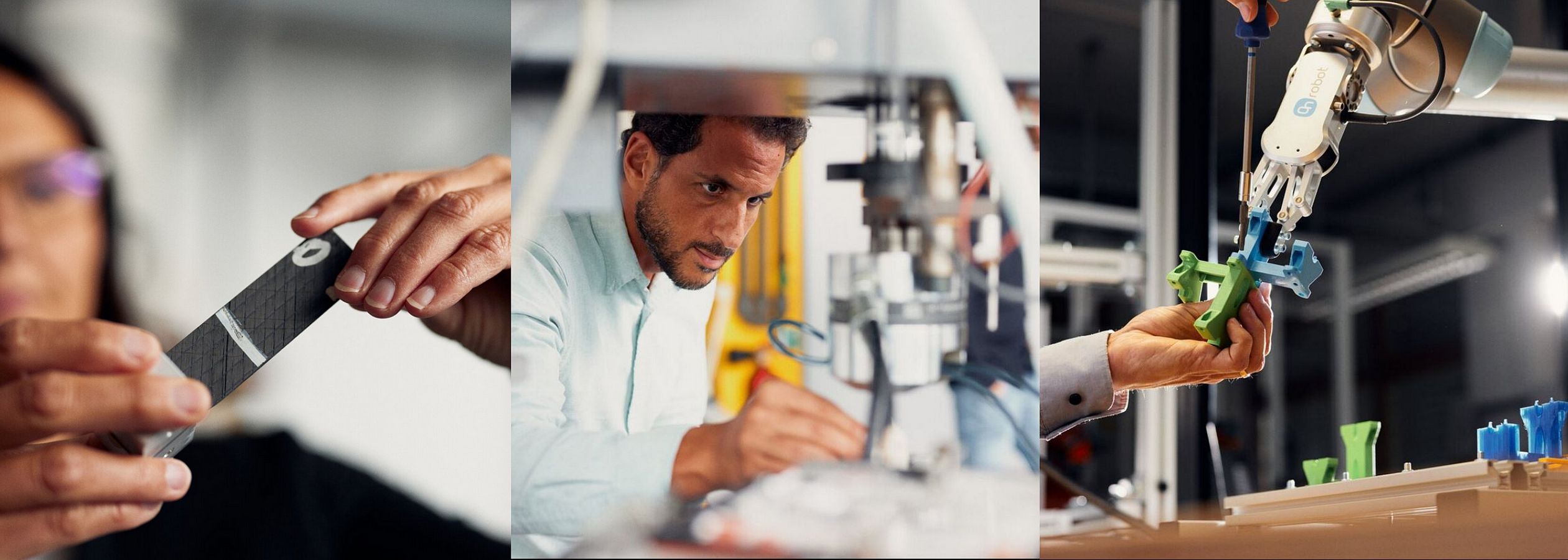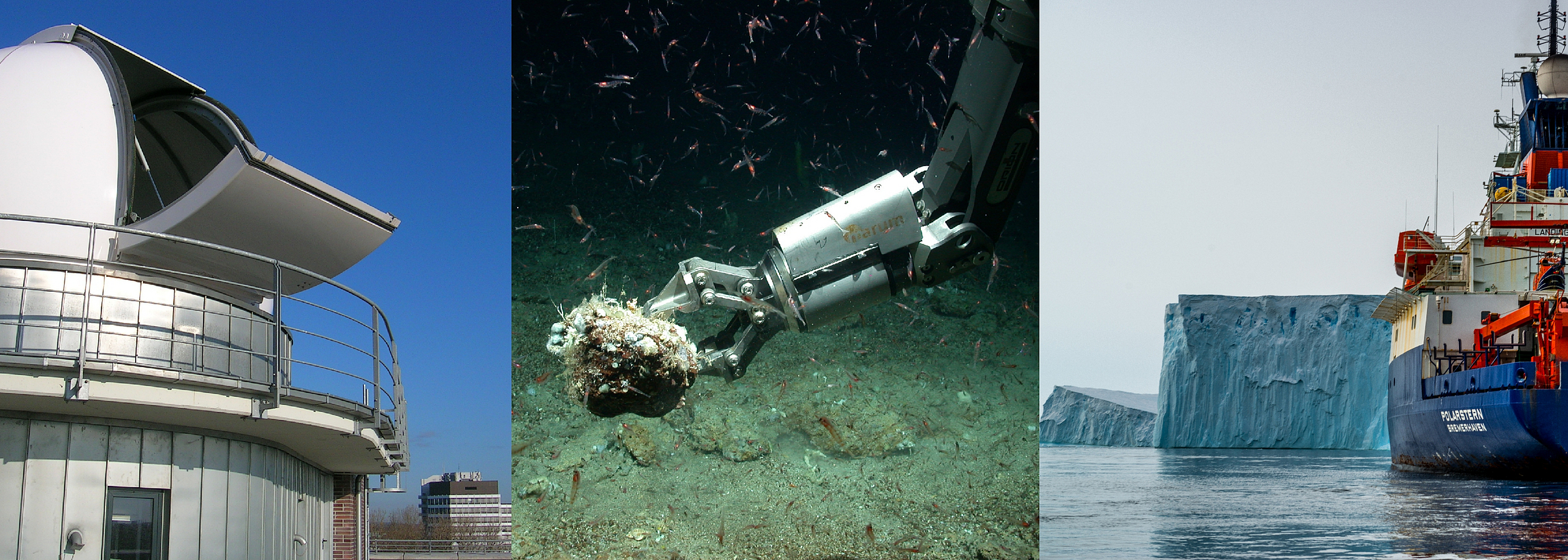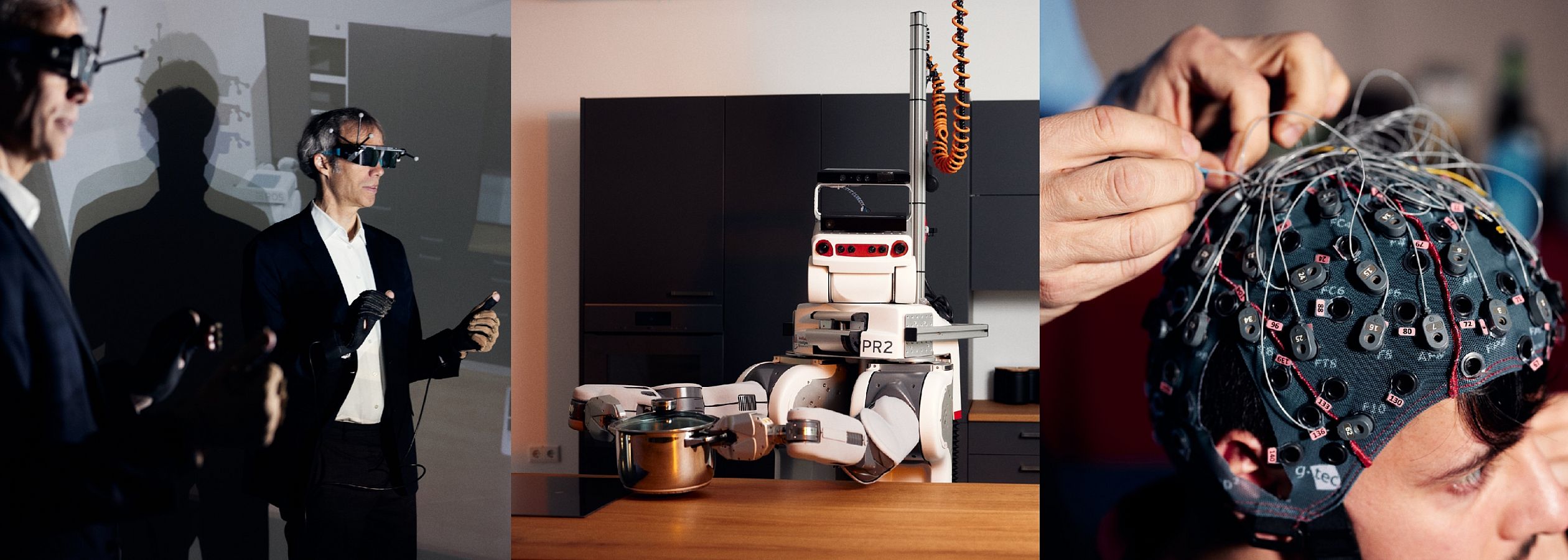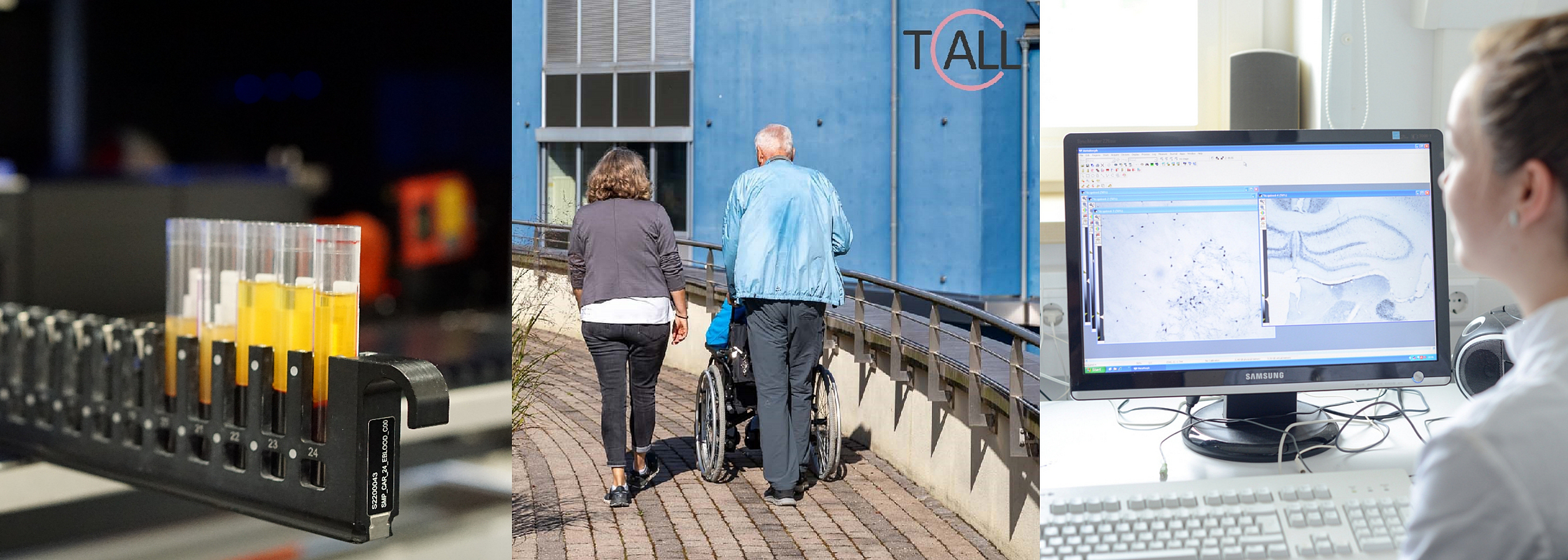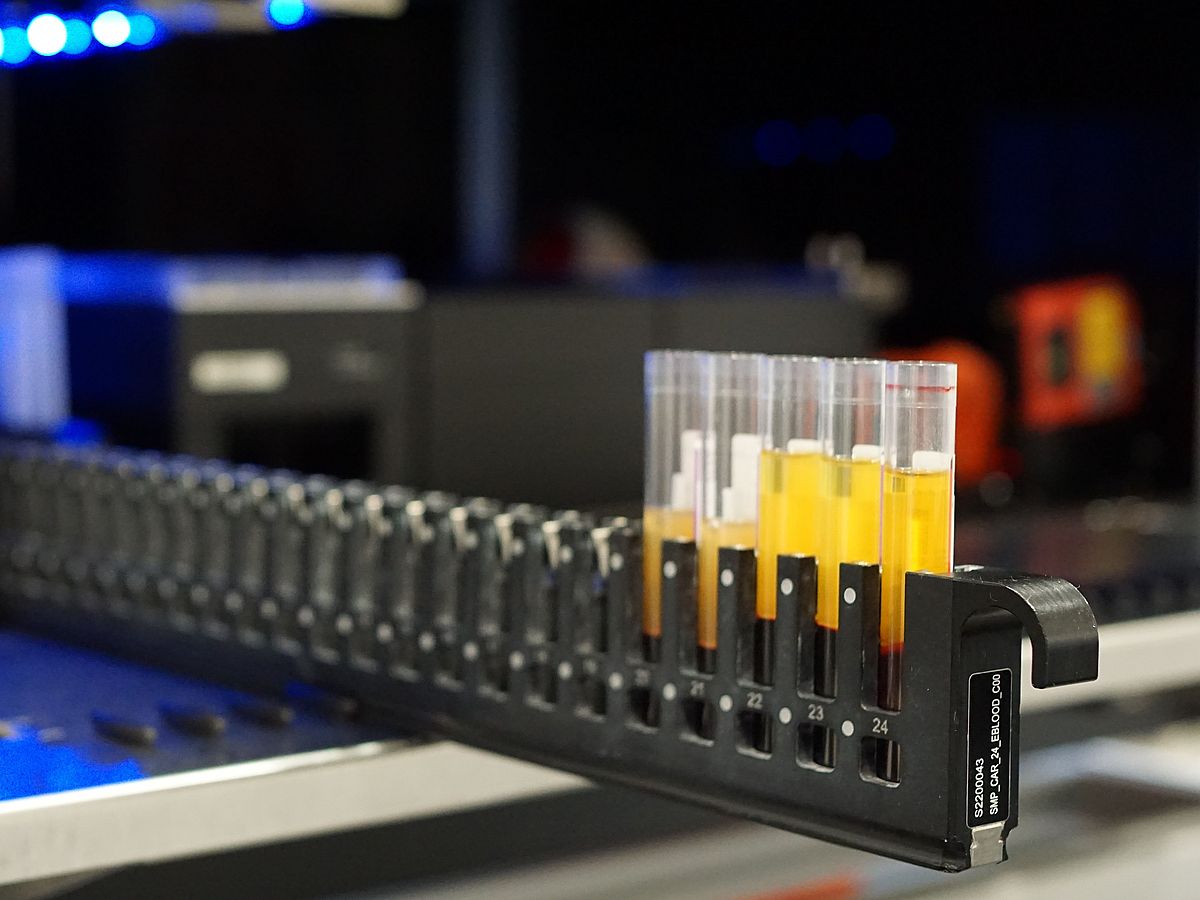High-Profile Areas
Top Research in Five High-Profile Areas
Researchers at the University of Bremen are dedicated to seeking responses to the burning questions of the future for today’s societies. They focus on five key scientific areas that largely define the research profile of the University, while at the same time reflecting core fields of innovation for the Federal State of Bremen itself.
In these high-profile areas, which all have an interdisciplinary approach, researchers work in close cooperation with internationally leading non-university research institutes in Bremen, which are funded jointly by the state and federal governments. The high-profile areas are regularly evaluated, and decisions on new areas are taken by the Academic Senate of the University based on transparent criteria.
Materials Sciences and Technologies
Resource-efficient, tailor-made, durable – these criteria are at the core of the research at MAPEX Center for Materials and Processes. The scientists pursue them along the entire process chain, from the development to the application of materials of all kinds.
One focus is on studying the difficult-to-predict physicochemical changes in materials that occur during their synthesis, manufacture, and use. The researchers use their findings to develop resource-saving materials and processes. These can be used to make everyday high-tech products such as cars, airplanes and cell phones more efficient, reliable and sustainable.
The use and production of materials under extreme conditions is playing an increasingly important role. This is precisely the focus of the Humans on Mars Initiative initiated by MAPEX. The scientists involved are investigating how essential goods and spare parts can be produced with scarce resources and without the use of fossil fuels. The 'Martian mindset' enables the interdisciplinary team of researchers to understand resource scarcity as an opportunity and basis for a paradigm of sustainability – also on Earth.
The scientists at MAPEX combine all disciplines of science, engineering and mathematics. Their goal is a deeper understanding of the relationships between processes, properties and performance of materials. To achieve this, they use state-of-the-art methods in the field of materials synthesis and characterization as well as computer-aided modeling of materials and processes.
moreMarine, Polar and Climate Research
Excellent environmental research as the basis for environmental sustainability has been a central element of the University of Bremen's profile for many years. In the interdisciplinary scientific focus "Marine, Polar and Climate Research" we bundle our topics and develop them further with the long-term research policy strategy of the state.
An ongoing Cluster of Excellence and two Transregional Collaborative Research Centres demonstrate the very high scientific quality and outstanding position of the University of Bremen in this field of research, which has also been reflected in the first place in the DFG's funding rankings for many years.
With the MARUM - Center for Marine Environmental Sciences, the University of Bremen has an internationally recognized center for marine research. MARUM gains fundamental scientific insights into the role of the ocean and the ocean floor in the entire earth system. As one of only three worldwide core repositories of the International Ocean Discovery Program (IODP), MARUM has a unique selling point in Europe. The University of Bremen with its Institute of Environmental Physics (IUP) also plays a leading role nationally and internationally in the collection and analysis of climate and environmental data (with a focus on the atmosphere, polar regions and oceans). On the data collection side, close cooperation with industrial partners in the field of satellite-based remote sensing (e.g. CO2 balancing, sea ice determination) plays a central role. Data management is bundled in the World Data Center PANGAEA - Data Publisher for Earth & Environmental Science, which is jointly operated by the Alfred Wegener Institute (AWI) and MARUM.
The research landscape in the state of Bremen is characterized by a large number of non-university research institutions (Alfred Wegener Institute Helmholtz Centre for Polar and Marine Research, Leibniz Centre for Tropical Marine Research, Max Planck Institute for Marine Microbiology), which cooperate closely with the University of Bremen as part of the "U Bremen Research Alliance" (UBRA) and contribute to the scientific focus. In addition to subject-specific courses in marine, polar and climate research (including international Bachelor's and Master's programs), interdisciplinary graduate training plays a central role in which natural and social science aspects are taught.
moreMinds, Media, Machines
An improved understanding of intelligence for the benefit of society – that is what scientists from computer science, the natural sciences, engineering and the humanities aim for in the high-profile area Minds, Media, Machines (MMM).
In the Collaborative Research Center EASE (CRC 1320), for example, MMM scientists are developing a new generation of artificial intelligence (AI) methods for robots with cognitive abilities enabling them to provide need-oriented assistance with everyday tasks to humans in their own homes. Joint learning of humans and machines is central to the development of such AI methods. To investigate this, Co-Construction – the joint generation of knowledge and skills between humans and robots – is a crucial new concept that MMM is advancing in an MMM-driven Cluster of Excellence initiative together with scientists from the Universities of Bielefeld and Paderborn. MMM further strengthens the research field of cooperative and cognitive AI through its collaboration with the Joint Research Center on Cooperative and Cognition-enabled AI (CoAI JRC).
For large lighthouse projects like these, MMM builds on a strong foundation of three pillars: The Minds research area is dedicated to the question of how we can better understand natural cognitive systems such as humans, for example, through computer models. The Media research area investigates how people interact with digital media and how we can use digitization for the benefit of society. In the Machines research area, scientists develop intelligent technical systems - smallest hardware components as well as cognition-enabled robots - and explore which methods of cognition-enabled AI, machine learning, and data science are best suited for this task.
MMM scientists conduct their research together across disciplines, connecting the three pillars. In doing so, they shape research fields that address pressing societal issues. In MMM, Artificial Intelligence is being designed in a human-centered way. It is tailored to human needs and to allowing humans to decide for themselves how their data is used and thus their privacy.
moreSocial Change, Social Policy, and the State
Inequality, social policy, and the welfare state – in this high-profile area, researchers at the SOCIUM Research Center on Inequality and Social Policy and the Institute for Intercultural and International Studies (InIIS) investigate social and political developments of contemporary societies and welfare states in the context of globalization and liberalization on the one hand and geopolitical competition and economic de-coupling on the other.
Two collaborative projects are central to this research: First, in a Collaborative Research Centre (CRC 1342), the researchers of this high-profile area study how social policy has spread throughout the world since its beginnings 150 years ago and which country-specific variants have emerged since then. Thereby the analytical perspective is expanded from the nation state to interdependencies between societies and from the global North to the global South. In the nationwide Research Institute Social Cohesion (FGZ/RISC), the researchers analyze social, cultural and political inequalities and conflicts as sources of threat to social cohesion. Focusing on the relationships between different social milieus, they ask whether these are drifting further apart and what can foster an understanding across milieu boundaries.
The recent research initiative on Global Solidarity (GlobaLab) integrates these ongoing research strands into a new format of transnational collaboration that brings together diverse substantive, analytical, and methodological approaches from around the globe. The guiding research question is whether and under what conditions global solidarity is possible in a fragmented world.
In keeping with their traditional strengths, the researchers in this high-profile area pursue an empirical, theory-guided, and internationally comparative approach. This includes the Bremen International Graduate School of Social Sciences (BIGSSS), funded under the German Excellence Initiative, which attracts PhD candidates from all over the world to study and experience social and political integration.
moreHealth Sciences
Prevention, healthcare and nursing care - these three areas are the focus of health science and epidemiological research. Common cross-cutting issues are equity and, increasingly, digitalization.
Researchers in the health sciences investigate how lifestyle and the environment contribute to the development or prevention of chronic diseases and which health-promoting measures are effective and efficient. In doing so, they follow a broad understanding of health that encompasses physical, mental and social well-being in equal measure. In the application-oriented FORESIGHT project and the "Healthy City" research cluster, scientists are working on issues such as prevention and health promotion. In addition, joint efforts are currently underway to establish a “model region cancer prevention” in Bremen.
Another focus in the high-profile area health sciences is on the question of how needs-based health and nursing care can be ensured. For example, researchers in the TCALL project are working on establishing a transfer cluster of “academic teaching care facilities in long-term care”, in which they constantly exchange findings and impulses with nursing practitioners. In this way, a long-term transfer bridge is being built from research via training to care.
In all of these topics, particular attention is paid to issues of equity in health and healthcare, for example with regard to social justice, but also environmental, gender, access and financing justice. In addition, digitalization is another cross-cutting topic that is the focus of the newly established research field "Digital Public Health". The core of this new research field is the Leibniz ScienceCampus "Digital Public Health", which explores the potentials, limits and risks of digitalization. Researchers in the health sciences investigate how a close exchange between users, public health experts and technology developers can be organized so that the numerous, rapidly advancing technological developments can be aligned with the wishes and needs of users in the best possible way.
more
